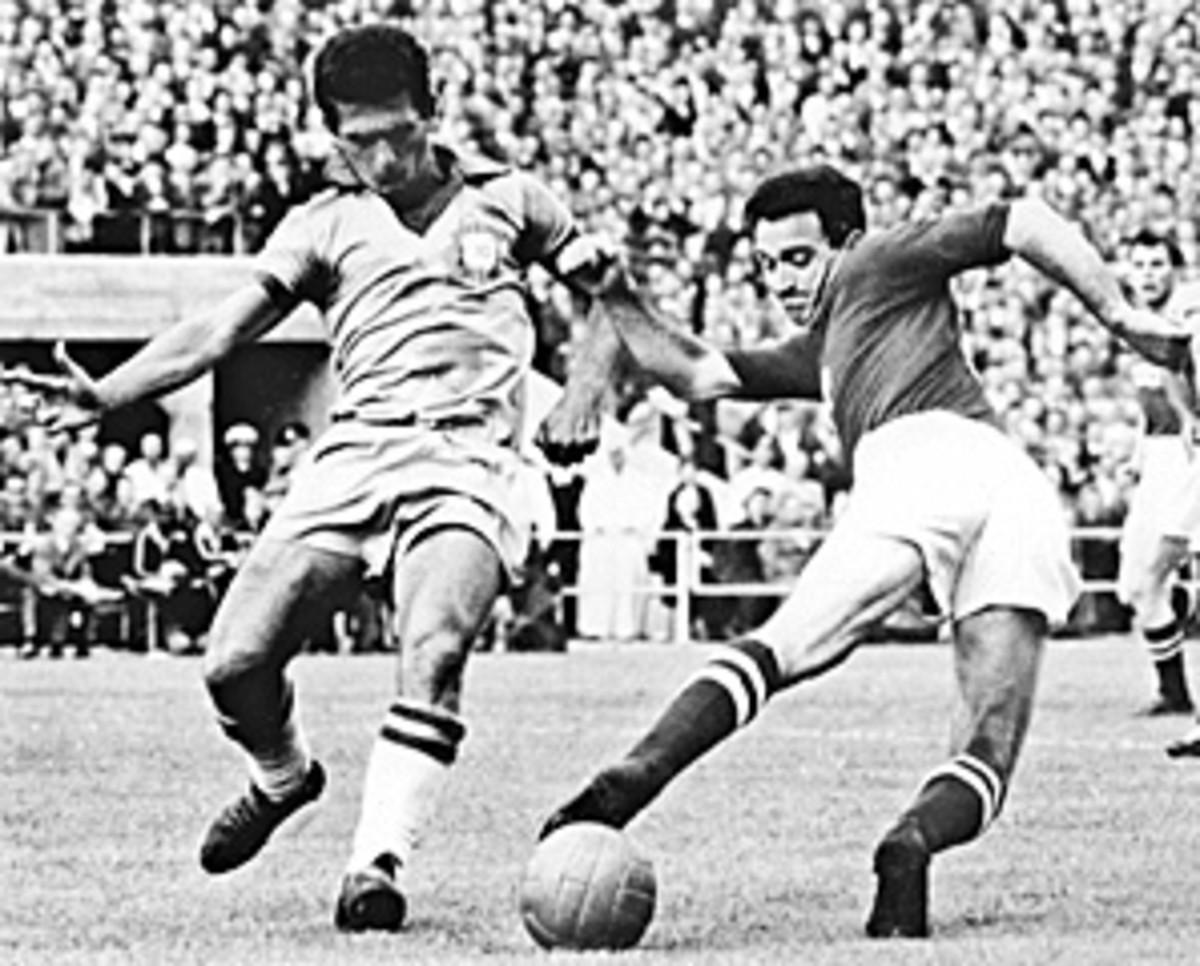A Brazil legend's lasting legacy
Brazilian football lost one of its all-time greats last week when Orlando Peçanha died at the age of 74.
If he had to go, then maybe the forces of destiny and the gods of soccer thought it appropriate to take him on the eve of Carnaval. Perhaps they were trying to make a point, juxtaposing his loss with the start of the country's great party. Because as revelers fill the streets from Rio to Recife, there are many who like to see Brazilian soccer as one giant Carnaval, everyone more concerned with having fun than with the result, in a fabulous land full of skilled strikers and inept defenders.
It is a nonsensical point of view that does a monstrous disservice to those who have played defense for Brazil -- and none has done it better than Orlando Peçanha.
In a low-scoring game like soccer, it is simply not possible to win titles while giving away cheap goals, and the record shows that no one is better at winning titles than Brazil. Statistics reveal that in World Cups very few can better Brazil's defensive record. This is not only a result of the individual ability of the likes of Orlando but also the intense tactical experimentation that occurred in the Brazilian game around the middle of the last century.
It was Brazil that came up with the idea of the back four. The old WM system had space for three defenders -- two fullbacks and a center back (who formed the base of the M). Coming up against superb strikers every week in domestic soccer concentrated the minds of Brazilian coaches, who hit upon the idea of placing another man in the heart of the defense. Now there would always be cover; one would mark and the other would be spare, ready to mop up the danger if his colleague was beaten. And so the modern back four was born.
The Brazilians played the system in Sweden in 1958, the first time they won the World Cup, and still the only time they have won it in Europe. The heart of their defense would quickly become the classic center back pairing. There was big, towering Bellini, the team captain, with few technical flourishes, but highly effective at dealing with the aerial threat. And alongside him there was Orlando.
Excellent in the tackle and blessed with the crucial defender's gift of being able to read the game and sense danger before it appeared, Orlando was made for the role. The 1958 side was perhaps the most stereotypically "Brazilian" of all the country's World Cup-winning teams. The older members of the 1970 side I have spoken to seem to agree that man for man the '58 boys were better. The squad in Sweden could count on the youthful Pele, Garrincha's twisting fullbacks inside and out down the right wing, Didi's pulling the strings in midfield and Nilton Santos' charging forward elegantly from left back. But one of the notable facts of that campaign is that Brazil did not concede a goal until the semifinal. Such defensive solidity permitted the front players to take risks and express themselves.
According to veteran journalist Sergio Cabral, in the opinion of Didi, the brains of that 1958 team, Orlando was Brazil's best player in the World Cup. But Orlando couldn't receive the same praise when Brazil retained its title in Chile four years later. By this time he had left Vasco da Gama in his native Rio and joined Boca Juniors in Buenos Aires. He was an idol in Argentina, but it made not the slightest difference to his international ambitions. Brazil did not select players who were based abroad, and so, much to his regret, Orlando was not included on the squad.
He returned home in time for a last hurrah at the 1966 World Cup in England. A year earlier he left Boca and joined Santos to ensure that he would be eligible for selection. In hindsight, he might have wished he had stayed in Argentina.
It is not a World Cup that Brazil can look back on with any fondness. Orlando, 30 at the time, did not play in the first two matches. But after Brazil was beaten soundly by Hungary in the second, his introduction was one of nine changes made for the final group game against Portugal. With Pele kicked out of the game and opposing striker Eusebio on fire, Brazil lost 3-1 and was eliminated from the tournament.
Some 35 years later, I gently asked Orlando whether he had been too old for the competition. Not a bit, he replied. He was as good as ever, but the team had been undone by chaotic organization. His professional pride was still bruised by the result. In the 30 official games he played for his country, this was the only time he was on the losing side. And in those 30 games, the team conceded just 23 goals.
It is a magnificent record, and it goes to show that in the country of Carnaval the strikers and attacking midfielders might be full of feints and dummies and dance steps of individual inspiration, but there is also a strong defensive tradition of center backs who are just as skilled in their own, less eye-catching arts.






